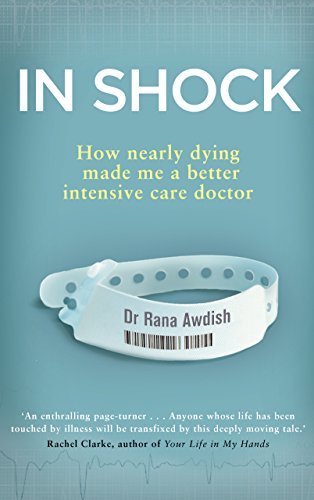What do you think?
Rate this book


'An enthralling page-turner... Anyone whose life has been touched by illness will be transfixed by this deeply moving tale' Rachel Clarke, author of Your Life in My Hands
'Urgent and supremely eloquent... In Shock is a book to set alongside the likes of Being Mortal by Atul Gawande, Direct Red by Gabriel Weston and, of course, Paul Kalanithi's When Breath Becomes Air' Caroline Sanderson
At seven months pregnant, intensive care doctor Rana Awdish suffered a catastrophic medical event, haemorrhaging nearly all of her blood volume and losing her unborn first child. She spent months fighting for her life in her own hospital, enduring a series of organ failures and multiple major surgeries.
Every step of the way, Awdish was faced with something even more unexpected and shocking than her battle to survive: her fellow doctors’ inability to see and acknowledge the pain of loss and human suffering, the result of a self-protective barrier hard-wired in medical training.
In Shock is Rana Awdish's searing account of her extraordinary journey from doctor to patient, during which she sees for the first time the dysfunction of her profession’s disconnection from patients and the flaws in her own past practice as a doctor. Shatteringly personal yet wholly universal, it is both a brave roadmap for anyone navigating illness and a call to arms for doctors to see each patient not as a diagnosis but as a human being.
266 pages, Kindle Edition
First published October 24, 2017
She’s circling the drain.I'm sure that you have your own stories. A neurologist told our family was told that my brother would likely be a vegetable after he was hit by a truck (he has since earned two masters degree). My parents told us that was just what you had to do to survive as a neurologist (it shouldn't have been their job to take care of and excuse this neurologist).
She’s been trying to die on us.
That was a really bad night for me.
Your kidneys aren’t cooperating.
It wasn’t my call.
You should hold the baby. I don’t mean to get graphic, but after a few days in the morgue their skin starts to break down.
At least you didn’t die.
How much pain medication do you take at home?
Are you sure your pain is an 8? I just gave you morphine an hour ago.
Maybe you’re just anxious. (p. 242)